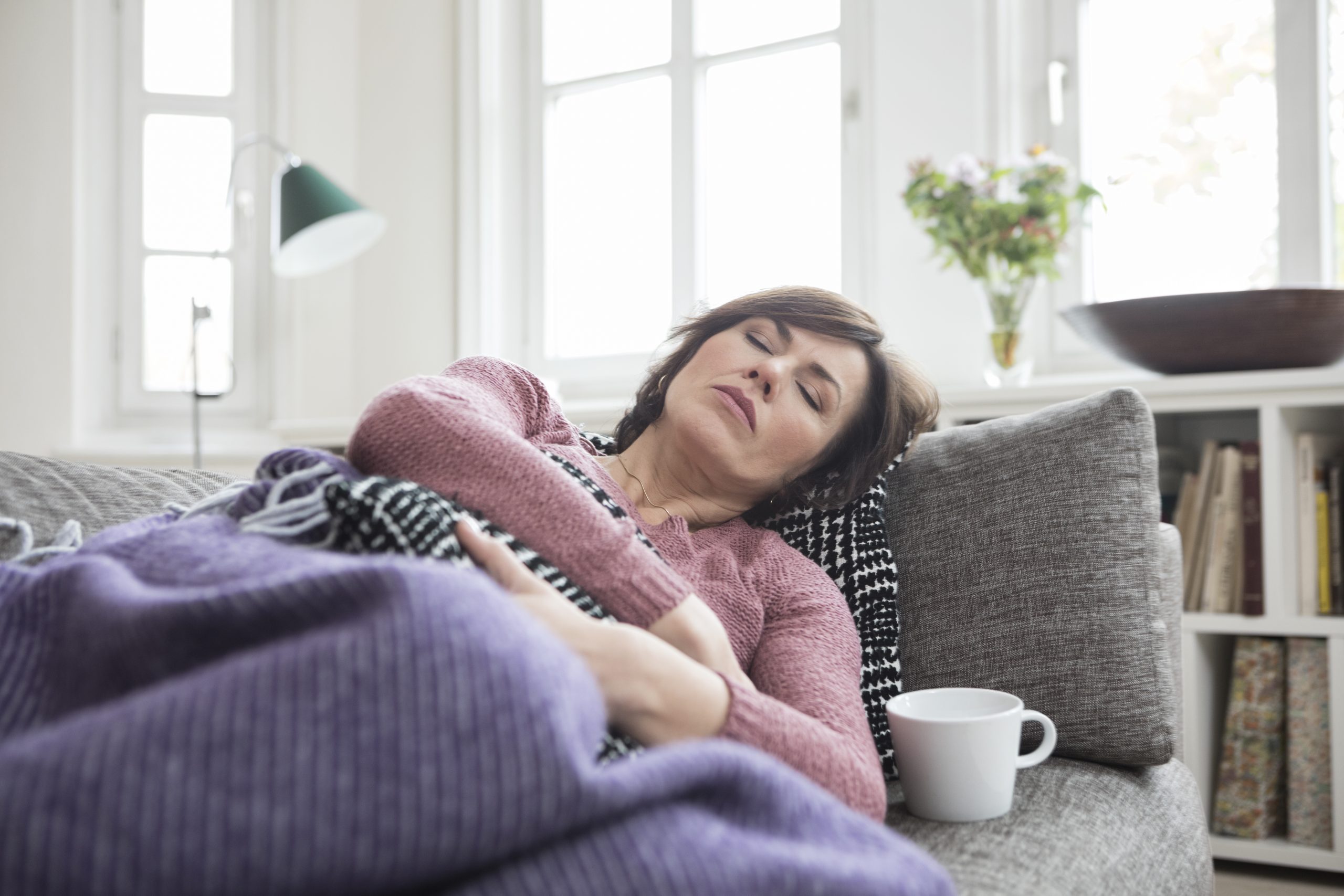We asked a naturopath why we feel tired ALL of the time

At any given time 1 in 5 people feel unusually tired and 1 in 10 have prolonged fatigue (according to the Royal College of Psychiatrists), who also note that ‘women tend to feel more tired than men’.
A study commissioned by Healthspan – the UK’s largest mail-order supplier of vitamins, minerals and health supplements – in 2018 reported that the average Briton spends seven and a half years of their life feeling tired.
Naturopath Caroline Peyton (pictured below) delivers her verdict on why the nation can't stop yawning.

What is going on?
21st Century living appears to be the main cause. Burning the candle at both ends, chronically stressed, poor eating habits and modern technology are all taking their toll on our health and our ability to feel well.
As a Naturopath I aim to help my clients achieve optimum health and to me this is a feeling of vitality. Vitality is a state of being full of life and energy. To achieve vitality there are a number of lifestyle factors that need to be considered and corrected and, from experience, it is possible to see almost instant improvements and relief from tiredness.
"Naturopath (noun): a health practitioner who applies natural therapies including homeopathy, acupuncture, herbal medicine."
Number 1 in my toolbox is looking at people’s diets to see if meals are balanced to help achieve balanced blood sugar (glucose). Most people tend to eat imbalanced meals with too many starchy carbohydrates (examples include potatoes, bread, pasta and rice) or too much sugary fruit and insufficient fat and protein. This will result in a spike in blood glucose, a corresponding release of insulin to utilise the glucose and very often a resulting dip in blood sugar levels. This “yo-yo” effect can have drastic consequences on our energy levels.
Sign up to our free daily email for the latest royal and entertainment news, interesting opinion, expert advice on styling and beauty trends, and no-nonsense guides to the health and wellness questions you want answered.
Number 2 is investigating people’s fluid intake. It is not just about the total quantity of fluid but what is being consumed. Tea, coffee and alcohol are stimulants. They stimulate the adrenal glands to release stress hormones and in preparation for the “fight or flight” response, glucose is released into the bloodstream. This tends to exacerbate the yo-yo effect I describe above – even more so if sugar is added to the drinks. So what may appear as an instant boost to energy very quickly has the opposite effect. A reliance on stimulants can soon become exhausting to the body.
At the same time most people aren't consuming enough fluid and the body may be dehydrated. Your body is around 60 per cent water and requires water in every cell. Water is involved in metabolic processes; delivering nutrients to cells and the removal of waste.
Most Brits don't get nearly enough sleep. Shift work and modern blue light from LED and mobile devices can play havoc with our natural circadian rhythms (sleep/wake cycle). 67 per cent of Brits have disrupted sleep (waking in the night, unable to return to sleep, difficulty falling asleep, according to a 2017 survey by Aviva UK). Blue light from mobile devices has a stimulating effect and may suppress melatonin, the hormone that helps promote sleep. In addition, the stimulating effect of TV and activity on our gadgets, plus stimulants like alcohol, disrupt our body’s preparation to fall asleep.
Our hectic schedules may also be putting us into a near constant state of stress. Chronic stress will cause the near constant release of cortisol – which is sometimes dubbed the "stress hormone" – turning up the alarm state of the body. As we aren't designed to be on high alert 24/7, this state will use up valuable nutrients and stored energy and impact on quality sleep. The consequences of this will add to fatigue.
Exercise, while positive overall and when done in moderation, can be another stressor on the body. I see many people undertaking very high impact cardio classes before or after (or both!) a stressful day at the office. This type of exercise can further fuel the stress response.
These are the tips I find most valuable in practice
Aim to consume three regular meals a day ensuring that each one has approximately 35 per cent of the plate protein and fats (think nuts, seeds, oily fish, avocados, olive oil); 45 per cent vegetables or salad and 20 per cent (non refined) starchy carbohydrates. Not only will the protein and fat help to keep you fuller for longer but the addition of these slow the speed that the starchy carbohydrates are digested to simple sugars (like glucose) and released into the bloodstream. This “balance” of macronutrients helps to keep blood sugar levels more stable throughout the day. Not to mention the fact that vegetables are delivering valuable nutrients and phytonutrients.
Aim to consume 2L fluid per day (slightly more when sweating) with the majority coming from water, herbal or fruit teas or very diluted cordial (if you do not like the taste of water). Limit your tea and coffee intake to 2-3 cups per day. Aim for several alcohol-free days and limit your alcohol intake to 14 units per week (both men and women), following current advice.
Aim to create a nighttime routine, turning off gadgets two hours before bed and choosing less stimulating TV programs. Try to establish a regular sleep and wake pattern. Allow yourself at least 30 minutes to unwind before going to bed and consider having an Epsom salt bath a couple of times a week as the magnesium content has a relaxant effect.
If waking in the night is a common problem, consider a small nighttime snack (such as two oat cakes with nut butter) as this may help avoid a dip in blood sugar and a release of adrenaline at 2 or 3am.
Find more calming, stress reducing exercise to do on a regular basis: yoga, pilates, tai chi, walking, dance classes, gardening are all good choices.
Download a meditation app and get into the practice of meditating at points throughout the day and especially before bed. Deep breathing is another beneficial practice.
Other potential causes of tiredness are nutrient deficiencies such as Vitamin D, B12 or iron.
Seek expert help
A qualified practitioner can help you identify the potential main causes of your tiredness. If a GP has ruled out there is nothing more seriously wrong, a Naturopathic practitioner will look to identify the root cause to ill health and help put in place a diet and lifestyle protocol that is uniquely tailored to you.
Caroline – find her at Peyton Principles – is a very experienced practitioner and is committed to helping her clients both in the community and corporate world lead a happier, healthier more active life. After twenty years in the corporate sector, she re-qualified as a Naturopathic Nutritional Therapist setting up in practice in 2010. She has expanded her knowledge by training in Naturopathy, Iridology, muscle response testing and wellbeing coaching. She helped launch and is Chair of the Naturopathic Nutrition Association (NNA), the practitioner organisation for those who practice in accordance with naturopathic principles and sits on the GNC (General Naturopathic Council).
Miriam worked for woman&home for over five years and previously worked on the women's lifestyle magazines Woman and Woman's Own.